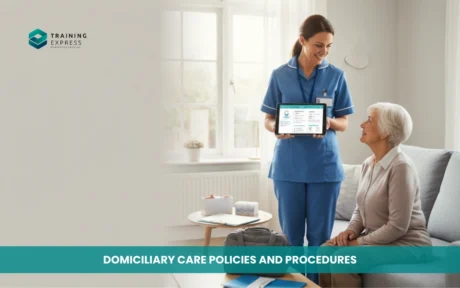
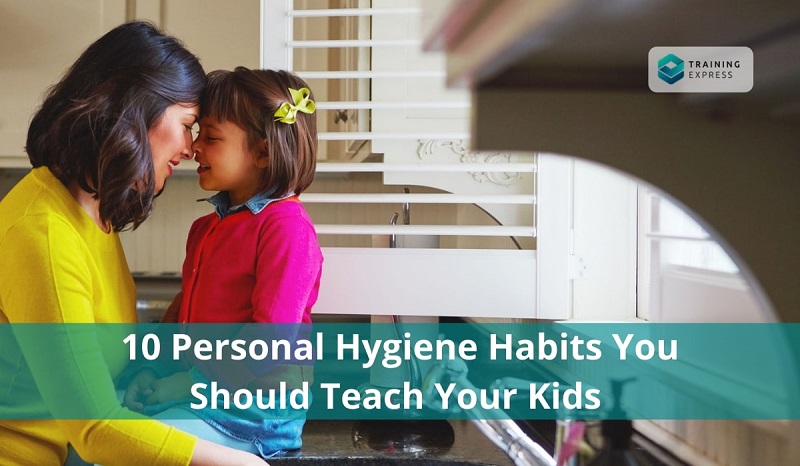
Your children learn how to survive in this world during their growth and development stage. So, understanding the concept of personal hygiene for kids is crucial. However, teaching your kids all of these can be a continuous and challenging process.
To make parenting a little easier, read these 10 personal hygiene habits that you should teach your kids. These hygiene habits will help reduce the transmission of diseases.
10 Personal Hygiene Habits You Should Teach Your Kids
Here are the 10 personal hygiene habits you should start to teach your children as soon as possible. They are the following:
Table of Contents
1. How to Wash Hands
Hands are the primary medium for bacteria to enter your body. That’s why, when your kids touch their mouth with dirty hands, they fall sick fast owing to bacterial contamination.
Therefore, when you begin teaching personal hygiene for kids, start with handwashing.
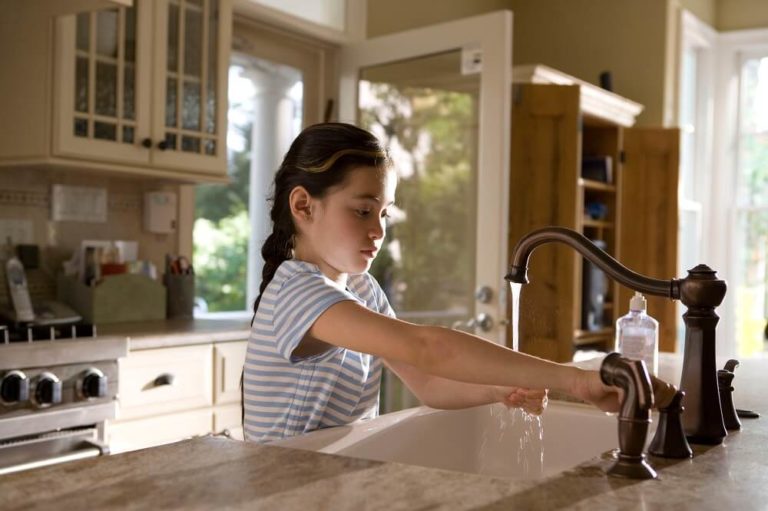
Firstly, regular hand washing can reduce the chances of spreading diseases, for instance- diarrhoea or dysentery. The easiest way to practise this technique is by showing your children how to wash their hands thoroughly. Teach them a step-by-step process on how to wash their hands. Also, ensure they get all the steps correct.
You can instruct your children according to the following steps:
- Use fresh water from a tap or some other sources.
- Wet both hands with water.
- Apply soap or hand wash liquid to your hands
- Rub to form a foamy lather.
- Make sure to clean in between all the fingers and under each nail.
- Wash hands at least for 30 seconds.
- Rinse the soapy foam away thoroughly with clean water.
- Dry hands
Secondly, don’t forget to teach your kids when to wash their hands. Make sure your kids keep their hands clean all day. Let them form a habit of washing hands every time they have done any of the following:
- After using toilet
- After playing outdoors
- Touching their pet or other animals
- After visiting any sick person
- After cleaning the house
- Sneeze or cough
- Before eating with hands
- After eating their food
- Coming home from outside
Washing hands is always a vital habit to keep yourself safe from germs and disease. Moreover, after the COVID-19 outbreak, we have newly realised the importance of hand-washing. It has shown how microbes in your hands can be life-claiming. So, teach your kids proper ways to sanitise their hands.
2. Oral Hygiene
Babies are born without any teeth. But within a year, they grow a couple of teeth. So, you should take care of their teeth from the very beginning. Also, teach your children to maintain oral hygiene by themselves by the time they turn 3-4 years of age.
Without proper maintenance of both teeth and gums, your children can develop cavities, smelly breath, and other oral problems. So, remember to teach them to take care of their gums. Besides, keeping teeth clean is a very important aspect of personal hygiene for kids.
Brushing Teeth
Firstly, make sure your kids are brushing properly. Here is a checklist of the things to not miss while explaining Oral Hygiene to your kids:
- First, make sure that your kids brush their teeth at least twice a day.
- Give them toothbrushes that are specifically made for kids. As they’re smaller and have soft developing gums, they need softer bristles. Toothbrushes for kids are available in departmental stores.
- In the first 12 months, gently rub the child’s gums by yourself with a clean cloth.
- When the first tooth appears, rub its surface gently with a soft toothbrush and water.
- Let your child use toothpaste when they are around two years old.
- Teach them how to brush by themselves.
- Any food particle shouldn’t be left to linger around the teeth because it can cause cavities and damage teeth.
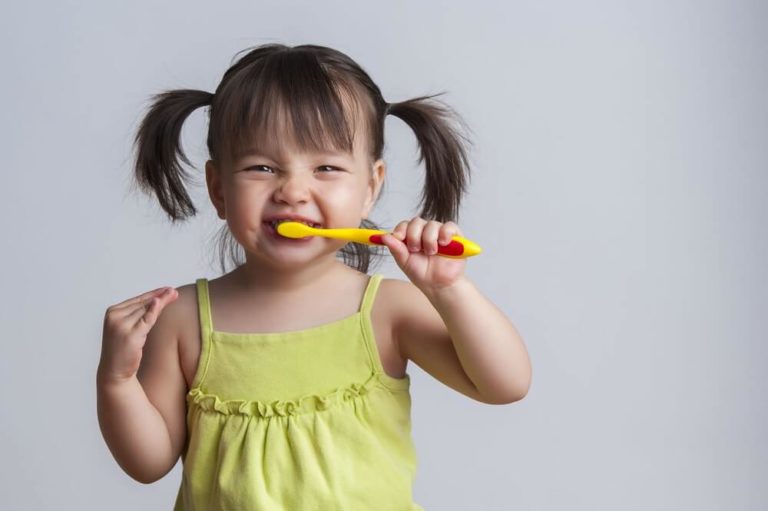
Secondly, teach them how to brush their teeth. Here are some techniques you must teach your child while growing up. Follow the right way of tooth brushing. Primarily, brush their teeth yourself and gradually introduce them to the right way to do it by themselves.
Few techniques are given below-
- Keep the brush angle 45 degrees to your child’s teeth.
- Move the brush back and forth slowly and gently.
- Brush all over the surfaces of teeth
- To clean the inner part thoroughly, you can hold the brush vertically and slowly stroke up and down.
- Use scrapers to remove any bacteria from the tongue area.
Flossing Teeth
Flossing is a great practice to keep your kids teeth away from dental cavities and other diseases. So, to keep their beautiful smiles safe, you should teach your children how to use dental floss.
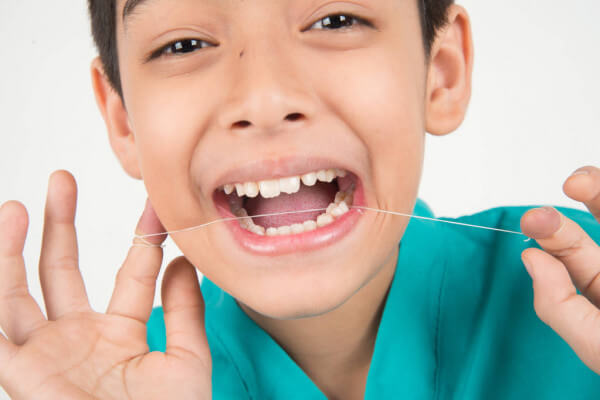
Teach them this step-by-step flossing technique:
- Take enough floss and wrap both ends between your fingers.
- Hold the floss between your thumb and index finger. Then, enter the floss inside your kid’s teeth.
- Hold the floss in a C-shape. Afterwards, gently rub the floss while keeping it pressed against your children’s teeth.
- Make sure that you floss all of their teeth.
- Get the jaw teeth flossed too.
Using Mouthwash
Mouthwash helps to kill all the germs in your mouth. It can prevent gingivitis and other gum diseases by killing the germs. Also, mouthwash can block bad breath.
However, handing over mouthwash to kids under 6 can also come at substantial risk. It is likely for children to get confused and swallow the mouthwash instead of rinsing it out. So waiting till your child reaches the right age is crucial for adding Mouthwash to their dental care habits.
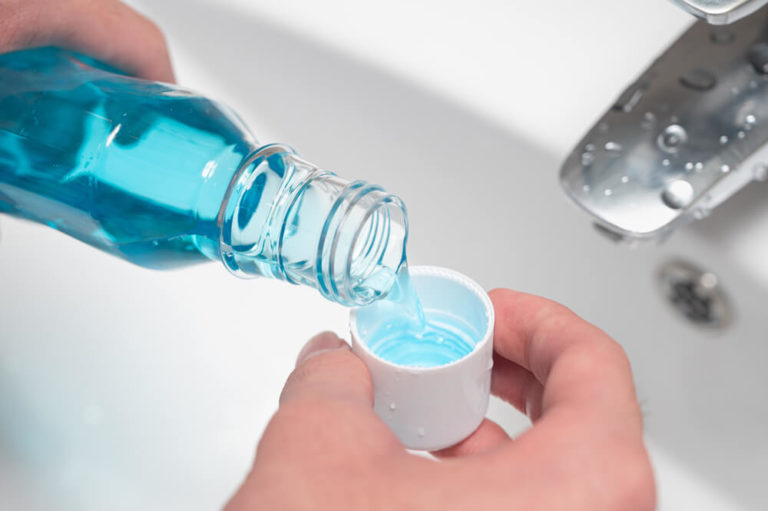
And following the instructions written on the mouthwash bottle is also important. Tell them when to use it, how much to use per rinse, and how many seconds to gurgle accordingly.
Encourage Drinking Water
Drinking water consistently is fundamental to maintaining good health. It helps the body to remain hydrated and healthy. Without enough of it, body functioning will slow down. Also, if one doesn’t drink an adequate amount of water, they may develop a smelly breath. So, advise your children to drink plenty of water every day.
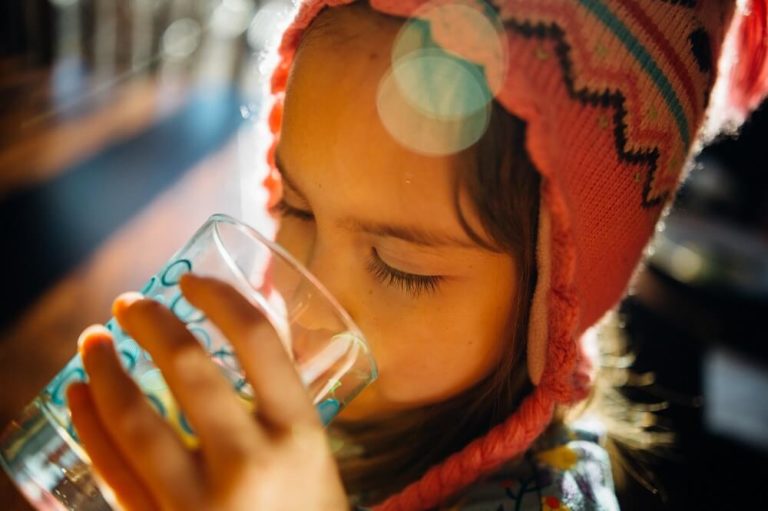
However, the amount of water required also depends on the age of the kid. So, check out how much water will be enough for them and suggest they drink that optimal quantity of water. And make sure to monitor this personally so that your kids form the habit of staying hydrated early on.
3. Toilet Hygiene
Naturally, the toilet is one of the places in your house that contains the highest amount of germs. Viruses, bacteria and other microorganisms grow easily on your toilet surface. Your children may often fall sick because of these germs. That’s the reason to keep the bathroom clean. Also, teach your kids the correct way of maintaining toilet hygiene. By doing so, they can avoid diseases.
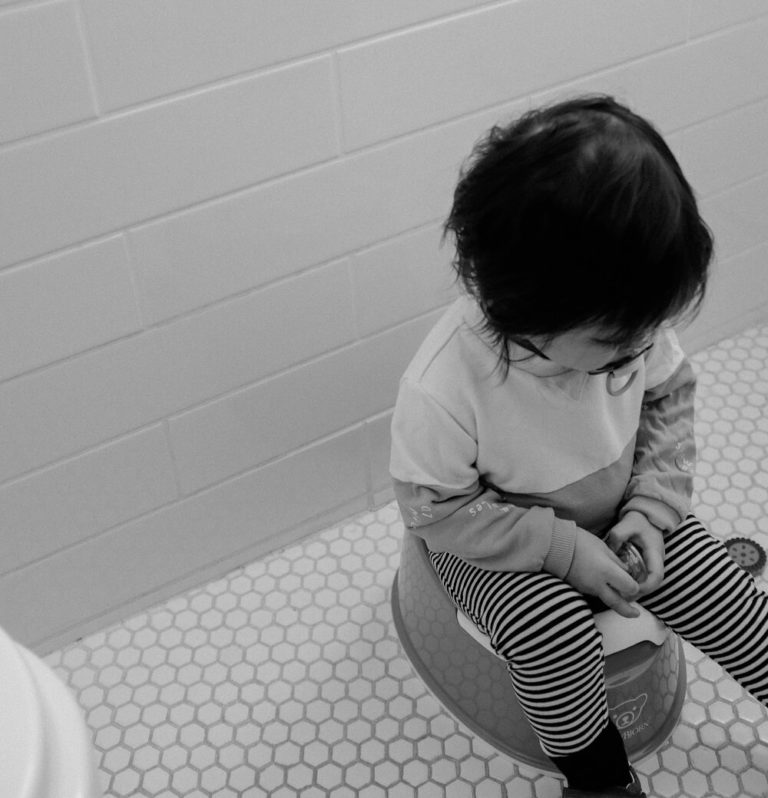
Don’t forget to-
- Teach your child to wipe and wash after toilet.
- Teach them how to flush the commode on their own.
- Explain that washing hands is mandatory after they use the bathroom every time.
- The best way to help them learn is by staying with them while using the toilet in the early stages. Similarly, guide them through the whole process.
- Teach them not to make toilet seats dirty.
Toilet hygiene falls under the essential personal hygiene for kids category. For becoming a civilised and well-mannered member of society, kids should learn these as early as possible.
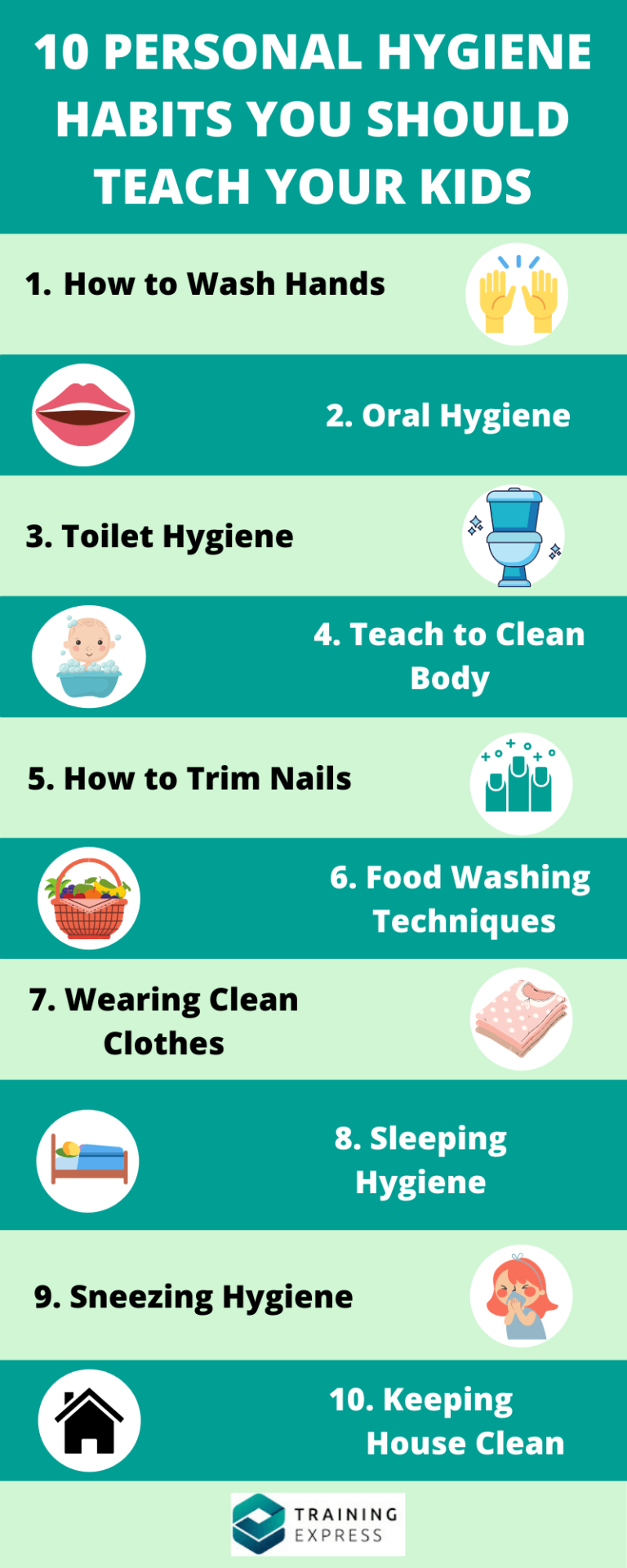
4. Cleaning Body Parts Correctly
The fundamental way to keep your kids clean and healthy every day is to encourage them to bathe regularly. Thus, it is one of the most important aspects of personal hygiene for kids (or anyone in fact!). Besides bathing, ask them to clean from head to toe thoroughly during shower time. Teach them how to take care of every part of their body.
Washing Body
Washing the body regularly falls under personal hygiene for kids. Some shower hygiene habits include the following-
- Firstly, encourage your kids to bathe twice a day. It will keep them healthy and germ-free. The best time for them will be before they go to school and after they come back.
- Secondly, ask them to gently scrub the whole body, especially- armpits, legs, and feet.
- Thirdly, teach them to clean private parts of their body.
- Next, ensure that they are using mild soap every time they take a sound bath.
- Finally, take extra care to check if they take extra care when cleaning their face because facial skin is more tender and delicate.
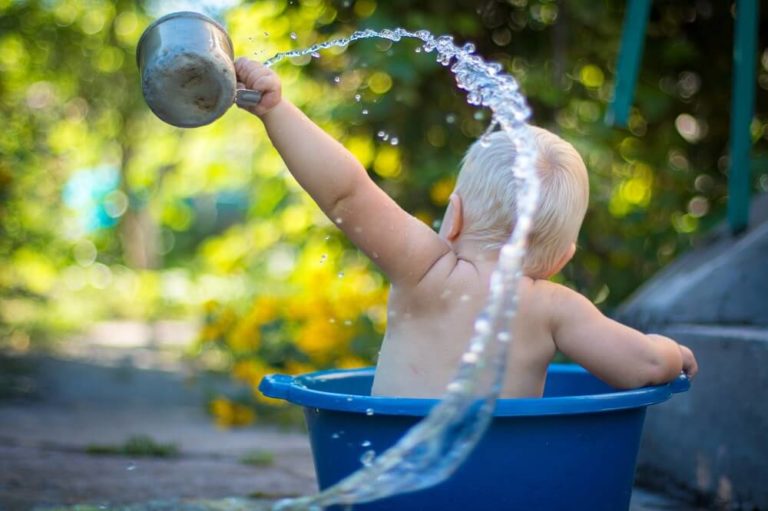
Washing Feet
When germs along with sweat cover those adorable feet of your baby, they can create odour. This is more of a problem when your child wears footwear all day long. The reason is that tons of dirt and bacteria accumulate on their tiny feet.
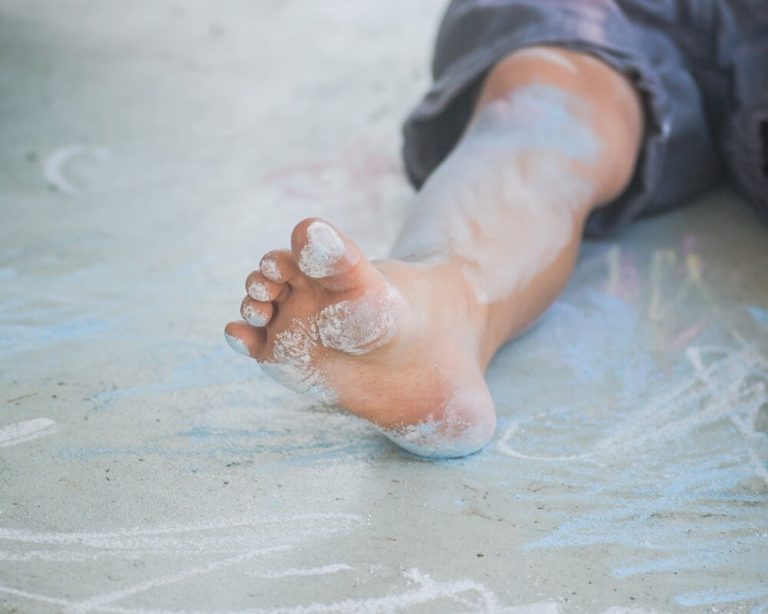
So do you want to teach your kids how to keep their cute little feet fresh and adorable? Start with these basic lessons for personal hygiene for kids-
- Make sure that your kids wash their feet every time while taking a shower.
- Teach them to scrub their feet properly with soap. Afterwards, rinse them with clean water thoroughly.
- Ask them to wear clean socks and change them as they get dirty.
- Teach your kids to keep their shoes clean to avoid contracting germs.
- Explain how to use a good moisturiser to keep their feet soft all day long.
Hair Care
Dirty hair can cause problems. Poor hair hygiene will promote dandruff, lice, and scalp infection. Your child may develop these while playing with their friends or other neighbour’s kids. To remain safe, your child should learn to take care of both their hair and scalp.
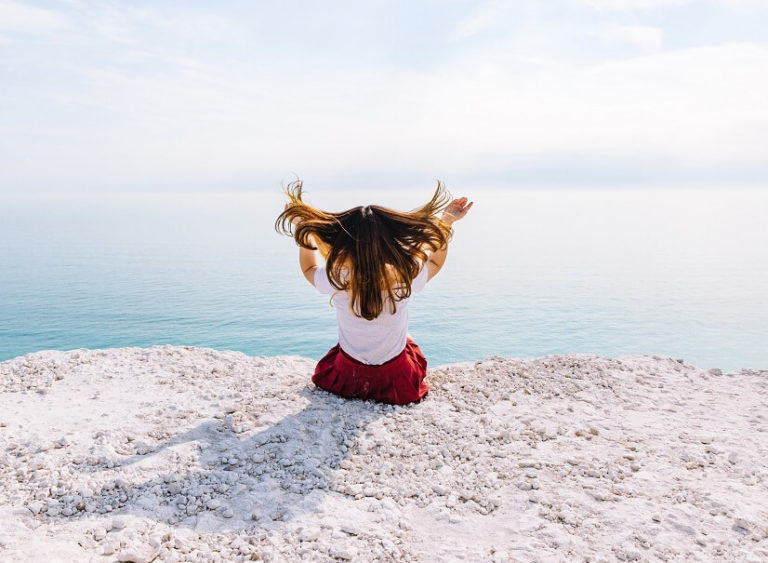
Here are a few things that you can do:
- Wash their hair at least twice a week to keep the hair free from dirt and oil.
- When your kids grow old enough to wash their hair, help them in applying the shampoo. Then, rinse with water properly.
- Tell them to dry their hair in the open air after patting their hair dry with a towel.
- If your kids have lice in their heads, ensure immediate treatment.
- If your kids have long hair, encourage them to keep their hair tied up mostly to avoid dirt, sweat, and pollution.
- Teach your child to avoid sharing personal stuff, for example, comb, pillow, shower towel, etc. with anyone else.
5. How to Trim Nails
Our nails grow every day. And, when it comes to kids’ nails, they accumulate more dirt and germs as they often play outside in the sand, dirty grounds, or mud. That’s why every week, you should ask your kids to trim their nails.
More specifically, you can fix a specific day of the week to do the task. It will help them to remember to take care of their nails on a particular day.
Moreover, help your child wash their fingers and nails, especially when they touch or play with an animal. Teach your kids to scrub, rub, and rinse their nails with water nicely to ensure cleanliness.
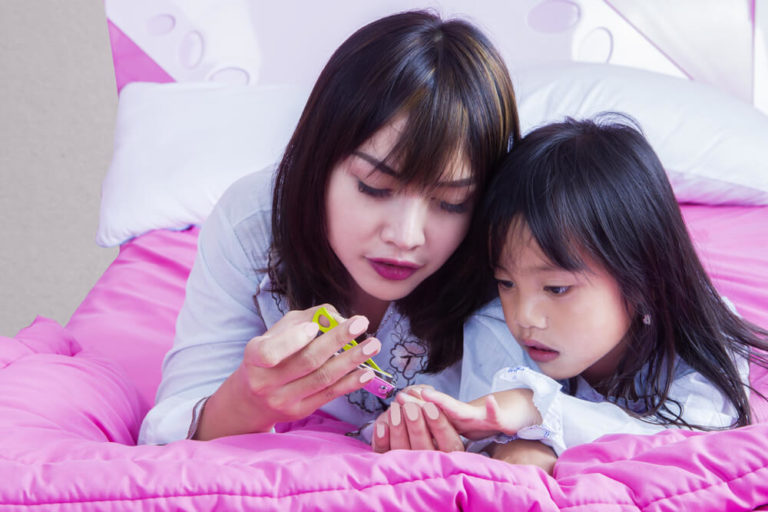
Furthermore, Kids have a habit of biting their nails. Discourage them from doing so as they can spread the germs from hands to mouth and become sick. Additionally, pay attention to your kids’ toenails and trim them when they grow longer.
You should trim them in the beginning when they are little. Otherwise, children may cut their fingers and bleed. Later on, teach them how to trim nails slowly. Most importantly, advise them to use a clean and rust-free nail cutter and ask them to throw the waste nails into the dustbin.
6. Food Washing Techniques
Washing food and vegetables are vital before you consume them. Consuming unwashed vegetables comes at a risk of getting food poisoning. Because microbes such as Escherichia coli bacteria are likely to lace the surfaces of unwashed food. So, you should teach your children to wash fruits and vegetables. Also, you should teach them which fruits to wash and which not to wash. For example, tell them to wash apples but not to wash bananas before eating.
Moreover, children are often seen to eat food even if it falls on the floor. So, tell them not to eat food if it is lying on the ground.
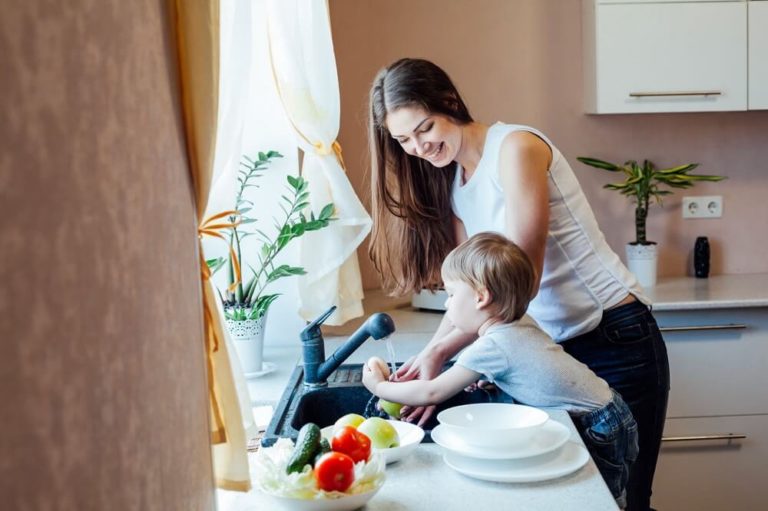
You can teach them through a step-by-step procedure of how to wash fruits and vegetables. Some such examples are as follows-
- Fill the sink for your kids with clean and fresh water for washing fruits or vegetables.
- Ensure your children can reach the sink and hold the fruits or vegetables. If not, get a safe stool for your kids to stand on it.
- Teach them how to wash fruits or vegetables by soaking them in the water and gently rubbing the skin with their hands.
- Show them how to take the food items from the water and then dry them.
7. Wearing Clean Clothes
Unclean clothes are one of the reasons for body odour. Moreover, it can be the reason for skin infection. Furthermore, dirty clothes can create a bad impression of a person to others. Therefore, give your kids lessons on how to wear clean clothes every day. Teach them the importance of wearing tidy and clean clothes. Also, you may instruct them on how to wash clothes properly.
Additionally, if your kids love wearing a specific outfit, advise them to wear it only when it is clean. Finally, teach them how to dry clothes in the sun.
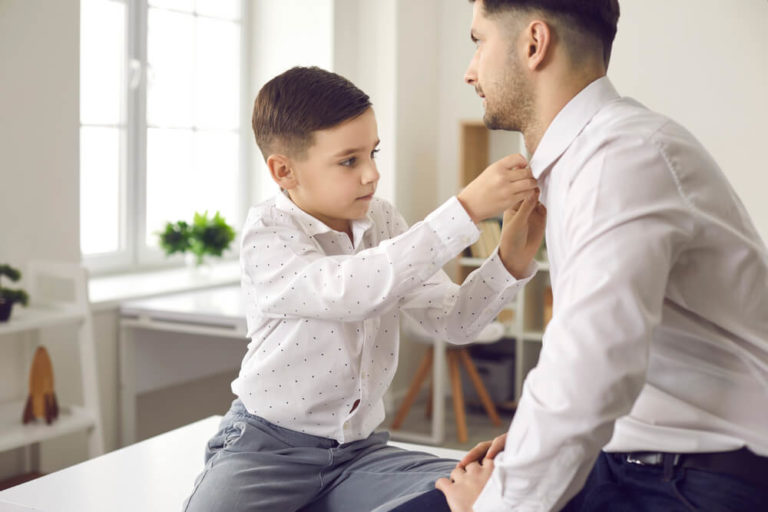
Naturally, kids don’t like to sit. They run here and there all day. That’s another reason why their clothes often get sweaty. And sweat, along with germs, creates a foul odour. Tell them to change clothes when it is sweaty or smelly.
Moreover, don’t forget to teach them how frequently they should change their clothes. Most importantly, they should never wear the same clothes after taking a shower. Explaining the importance of clothing hygiene is a crucial part of teaching personal hygiene for kids. Moreover, it is also important for teaching them socially acceptable norms.
8. Sleeping Hygiene
Sleeping and resting are essential for humans, as the body utilises this period to regenerate new cells and record memories. This time is key for kids, as their bodies are in a development phase in this stage of life. Children need at least 8 hours of sound sleep. And, they must sleep in a healthy environment for better health.
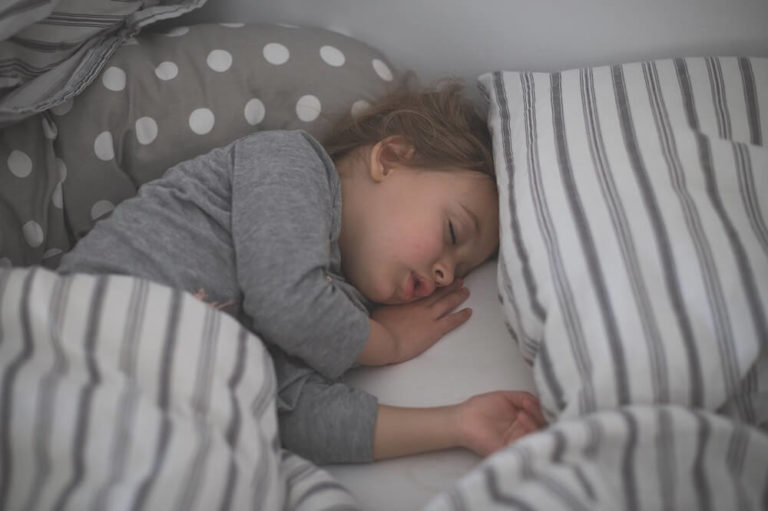
A healthy environment for sleep includes everything that helps your kids have a great sleep every night. It allows them to wake up feeling very active during the days and rest peacefully during the nights.
Here are some ways which will help you teach them good sleeping habits:
- Make sure they are sleeping on a clean bedsheet and pillow covers.
- Avoid letting your kids fall asleep at odd hours of the day. Instead, teach them not to sleep during the day so that they can sleep well at night. However, many children take a power nap in the afternoons. It helps them avoid dozing in the evening.
- Ensure they are using their bed only for sleeping and not for watching TV or other activities.
- Create a good sleeping environment. For example, use dim lights in the children’s room that let your kids rest properly.
- Keep gadgets, for instance, phones, away from children at night.
- Let your child go to bed every day at the same time of the day.
- Tell your children to wear clean and loose clothes before bedtime.
- Instruct them not to sleep on an empty stomach. Let kids grow a habit of drinking milk before bedtime. If they still feel hungry, you can give them cookies. Avoid heavy meals just before going to bed.
- Teach them that going to the toilet once before sleeping every night is good for sound sleeping.
9. Sneezing Hygiene
No matter how much you try, your children can fall sick anytime. Sometimes your kids can get infected with a common cough, seasonal sickness, or a cold. They may start sneezing or coughing.
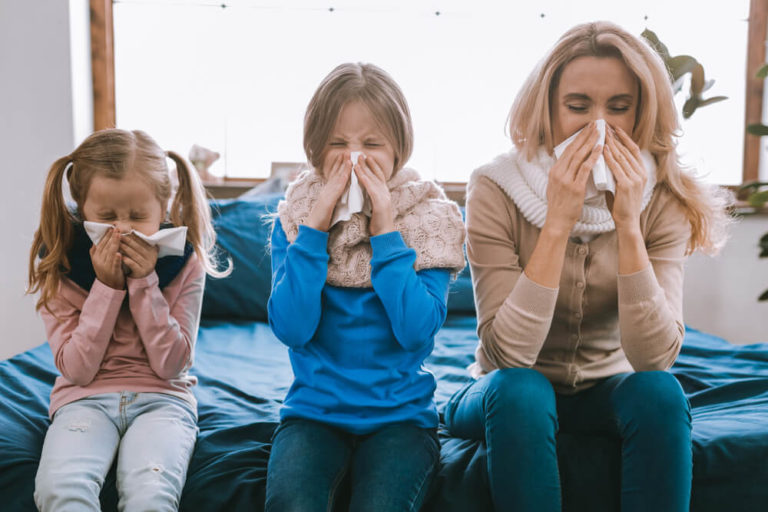
Here’s a list to help them heal faster and prevent them from spreading germs to others-
- Firstly, prevent your kids from spreading germs by teaching them how to sneeze or cough with proper etiquette. For example, they should sneeze while covering their mouth and nose.
- Secondly, encourage your kids to use a handkerchief or tissue paper instead of using their hands. Tell them, if a cloth is not available at that moment, teach them how to use their sleeve or elbow instead. This act will surely prevent them from spreading the infection through their hands.
- Lastly, you can encourage them to wear a mask whenever they go outside. It will safeguard your little ones from any types of infection, germs, and dirt particles.
10. Keeping House Clean
Home is the first school for every child, and parents are undoubtedly their best teachers. This is precisely why teaching them the importance of keeping the house clean early on is so important.
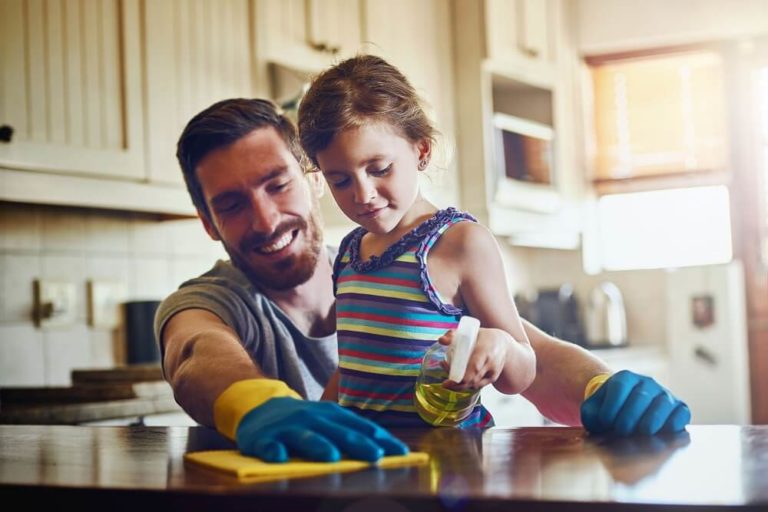
Besides all kinds of hygiene habits mentioned above, your children should learn to take responsibility for their home. Therefore, some personal hygiene for kids should be built up at home, such as:
- Instruct your kids to pick up their plates after eating. Dump the leftover into a dustbin. Then, put the dishes in the sink and wash them with dishwashing soap. Also, tell them to wash their hands once they are done.
- Teach them how to keep the room neat and clean.
- Make sure they clean their reading table every day.
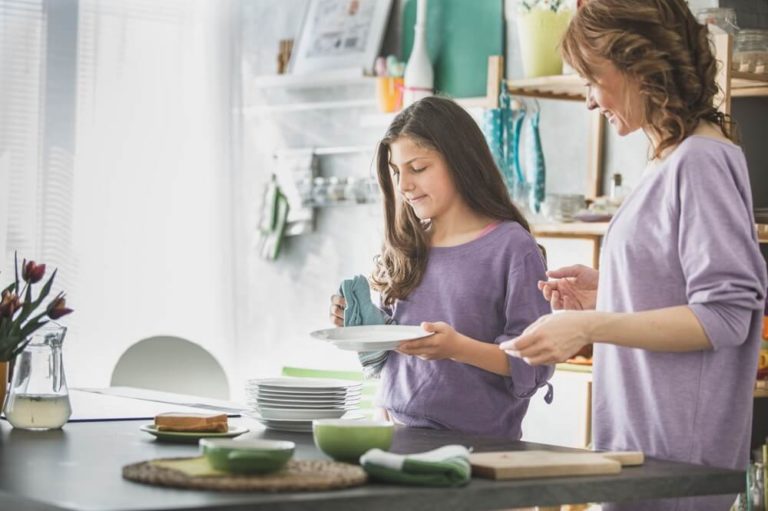
- If your kids mistakenly spill something in the house, teach them to clean it. If your children are very young, help them to clean it.
- Instruct them to organise their books, bookshelves, and wardrobe while growing up.
- Ask for help while you do house chores so that they can learn from you.
Personal Hygiene for Kids: 7 Tips for Teaching Your Kids
You can’t teach your kids all the hygiene habits in a day. It may take months or years. So, hold all your patience and give them time to learn. However, some undesirable turns might show up at any time. Still, avoid scolding your child as they are on a learning journey.
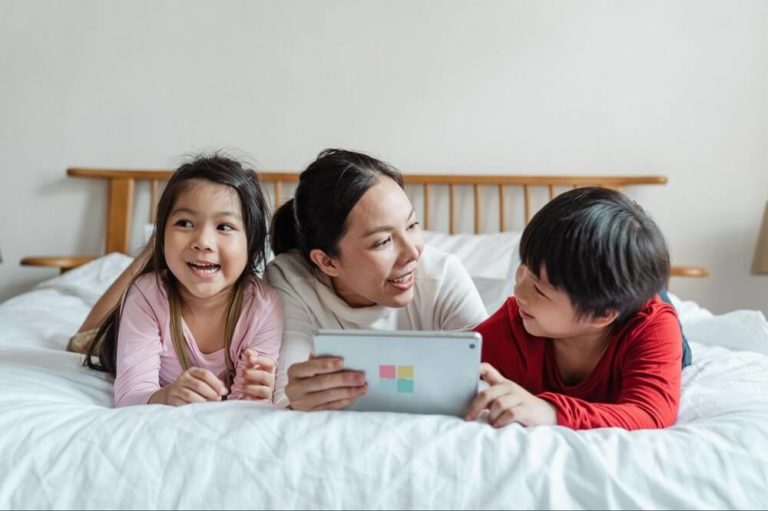
Some tips on teaching personal hygiene for kids include the following-
1. Explain the Difference
Firstly, begin by teaching them about all the good and bad habits. Then, explain them with examples so that they can understand better. Finally, try to explain them with complete patience.
2. Explain the Purpose
Secondly, explain to your children why they should maintain good personal hygiene for kids like other healthy children. In simple words, tell them the reason behind why something is good or bad.
3. Encourage and Praise the Little Ones
Thirdly, praise your children when they do something good. Everyone feels motivated to do something good if they are appreciated well.
4. Begin with the Basics
Start with teaching them to wash their hands first and then move onto bigger things like teaching them how to bathe, maintain proper dental and food hygiene, etc.
5. Practice Well Before You Teach
Furthermore, kids are more intelligent than you consider them to be. They are great observers. They often try to imitate you.
Therefore, always make sure that you maintain all the hygiene habits that you want to teach as ‘personal hygiene for kids’ yourself before teaching them. Given that kids are more prone to observing and learning, this will by far be a lot more effective. You may take a Personal Hygiene For Kids Course to ensure your hygiene and your kids develop hygiene habits from you.
You May Enrol Now: Personal Hygiene Course
6. Educate Them Well
Additionally, explain to your children the different kinds of germs and microbes that cause diseases. Then, show them videos on hygiene practices. Subsequently, explain the things that will happen if they get affected by diseases.
7. Make Learning a Game
Finally, try exciting and funny ways to teach them, so that they can remember better. For example, try including exciting activities and games whenever you teach them.
Things You Must Avoid While Teaching Personal Hygiene to Kids:
Here is a list of things you must avoid when teaching your kids about hygiene. These tips will help you to know what will be harmful to your little ones.
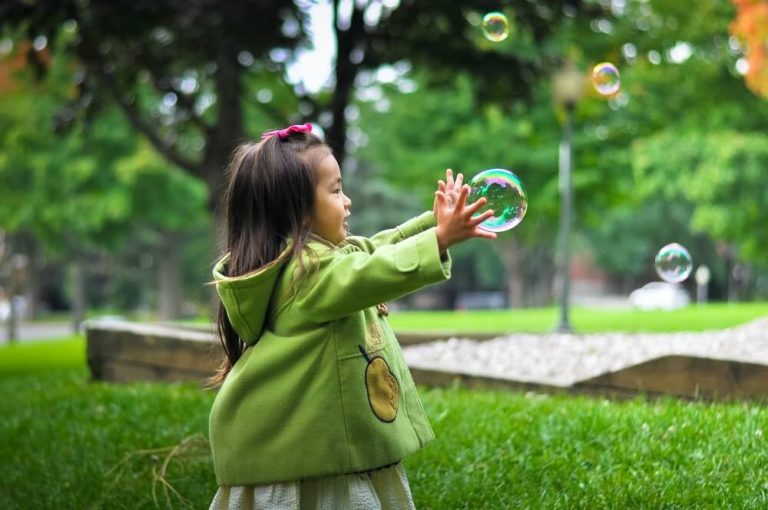
1. Don’t Scold Your Kids.
Firstly, do not rebuke your kids, as it will discourage them from learning. Learning time is different for every child. Some kids take more time to catch new things. Be patient yet persistent with them.
2. Don’t Compare with Others.
Secondly, comparing your kid with other children will belittle your little person. They may get demoralised and end up have low self-esteem in the long run. So, comparison is certainly not going to help them learn personal hygiene for kids. Moreover, let them take as much time as they need while learning. Patience and consistency are key here.
3. Don’t Punish Them
Thirdly, reward your kids for doing good. And prioritise it over punishing them. Punishing kids is another tricky aspect of parenting. Overdoing it can leave long-term harms behind, so minimising punishment as much as you can is important. Instead, try things that kids are more accepting of. For example, they appreciate it when their parents are communicative and help them to follow through a lesson properly.
To summarise, punishment in general is not likely to contribute much in teaching personal hygiene for kids. So adopting other methods is almost always ideal.
Final Thoughts on Personal Hygiene for Kids
Maintaining personal hygiene is very important to possess sound health. If you want to reduce the risk of infection and improve your overall health and lifestyle, adopt hygiene habits. Also, encourage your little ones to take care of their personal hygiene. Learn more about personal hygiene for kids for making sure that your little angels are always at their healthiest!
Frequently Asked Questions (FAQ)
What are the essential personal hygiene habits for kids?
Kids should practice habits like regular handwashing, brushing teeth, bathing, proper toilet hygiene, nail care, and keeping hair clean to stay healthy and prevent infections.
At what age should children start learning personal hygiene?
Children can start basic hygiene habits like washing hands and brushing teeth around age 2–3, with more independent routines taught gradually as they grow.
How can parents encourage kids to follow hygiene routines?
Parents can encourage hygiene by making routines fun, using reward charts, leading by example, and providing age-appropriate guidance and supervision
Why is teaching personal hygiene important for kids?
Good hygiene habits help prevent illnesses, build confidence, promote social skills, and instill responsibility from an early age.
What are common hygiene mistakes children make?
Children often skip handwashing, brush teeth inadequately, forget to bathe regularly, or neglect nail and hair care. Parents should supervise and guide them to form proper habits.
- Available Courses
- Animal care10
- Design36
- Training10
- Accounting & Finance Primary52
- Teaching & Academics Primary37
- Teaching23
- Quality Licence Scheme Endorsed181
- Law10
- IT & Software238
- Job Ready Programme52
- Charity & Non-Profit Courses28
- HR & Leadership4
- Administration & Office Skills6
- Mandatory Training36
- Regulated Courses4
- AI & Data Literacy29
- Health and Social Care291
- Personal Development1667
- Food Hygiene119
- Safeguarding81
- Employability288
- First Aid73
- Business Skills301
- Management426
- Child Psychology41
- Health and Safety538
- Hospitality28
- Electronics30
- Construction63
- Career Bundles201
- Marketing39
- Healthcare174
 Food Hygiene
Food Hygiene Health & Safety
Health & Safety Safeguarding
Safeguarding First Aid
First Aid Business Skills
Business Skills Personal Development
Personal Development





